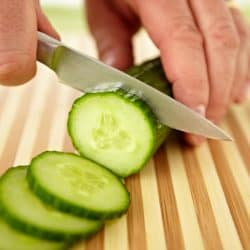The right tools are a vital part of preparing any meal. One of the most critical kitchen tools is a properly sharpened knife. Maintaining sharp blades on your knives will take a bit of work, but we've researched one of the most important how often you need to sharpen kitchen knives so you can maintain a useful and safe tool.
The simple answer is that you need to sharpen kitchen knives before they become dull. For the average home cook, sharpening your kitchen knives every 3-4 months is sufficient to prevent dulled blades.
Keep reading to understand why keeping your knives sharp is an essential part of kitchen maintenance. We've compiled useful information about the sharpening process and answered several common questions about maintaining blades.
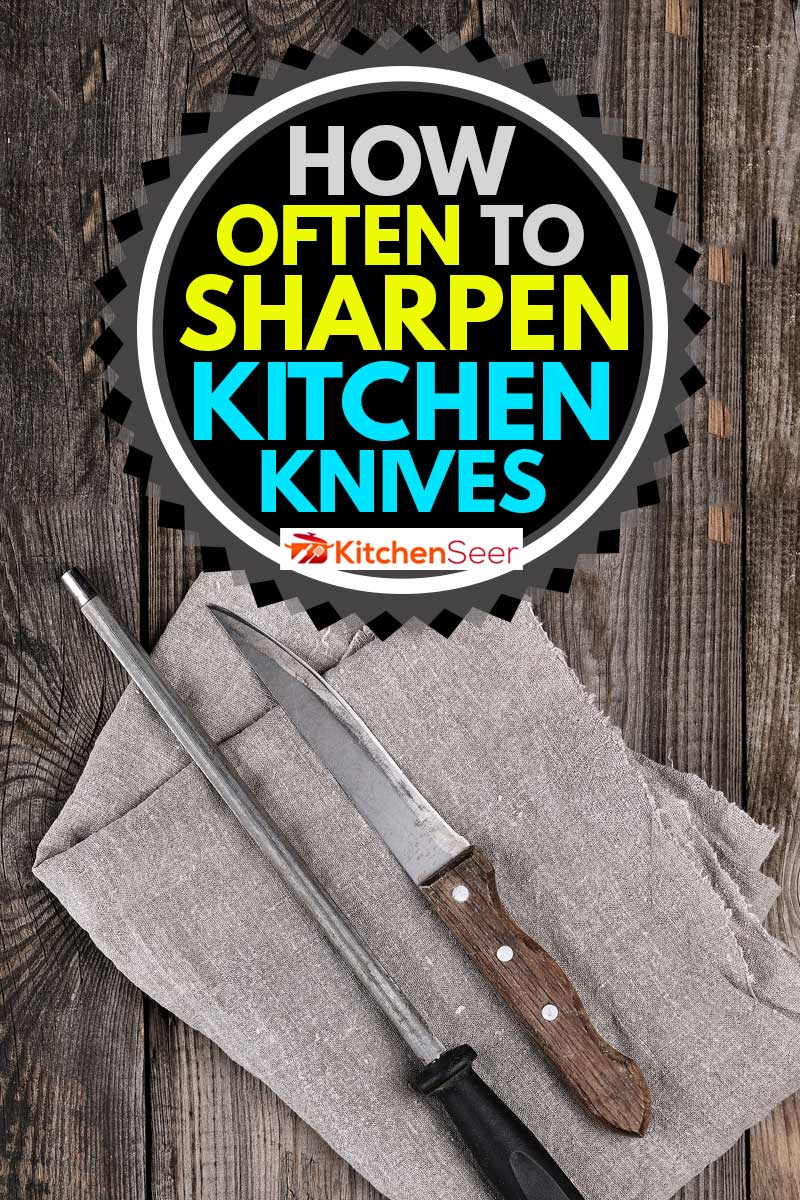
Know When It's Time To Sharpen Knives
The time it takes for a kitchen knife to become dull varies based on use. How often do you use your knives? For what purpose? And on what surface? So with all these variables, how will you know when it's time?
There are a few simple ways to help determine when you should sharpen your knives. The simplest method is to observe the blade's function while cooking. Do you notice an increasing amount of force needed while cutting and chopping? If using your knives has become more challenging or the quality of your cuts decreases, it's probably time to sharpen your knives.
If this type of observation isn't enough to help you decide, you can perform a simple test using your knives to cut paper. Blades should easily slice through a perpendicular held piece of paper. If the paper begins to scrunch before cutting, it is time to sharpen your blades.
Sharp Kitchen Knives Are Essential
You may be wondering why keeping your knives sharp is a kitchen essential. Having sharp knives will aid in both the speed of the cooking process and the skill demonstrated. Sharp knives allow for more precise cuts and make it easier to cut delicate food without damage. Precise cuts don't just make your meals more aesthetically appealing; they help your food cook more evenly and even cause some herbs to remain fresher longer.
Not only does a sharp knife help make the cooking process more manageable, but it is also safer to use than a dull knife. When a blade is dull, it requires more pressure to cut and is also less likely to stick to the surface properly. Meaning, with a dull knife, there is a greater chance of the blade slipping. And the increased force needed when using a dull knife will also increase the opportunity for injury.
So, you've determined your knives need sharpening, but what else should you consider? There are different sharpening tools to help keep your blades in top shape, or you might choose to forgo the tools entirely and opt for professional sharpening services. We will help break down some considerations for keeping your kitchen knives in good working order.
Can You Sharpen Knives Too Much?
You may think that the best way to avoid a dull knife is to sharpen your blades after each use. While it is essential to have sharp knives in the kitchen, you can have too much of a good thing. Sharpening removes bits of the blade each time, so oversharpening can shorten the lifespan of your knives.
Are Electric Knife Sharpeners Any Good?
Electric knife sharpeners, like any tool, have both pros and cons. The quality of electric knife sharpeners has significantly improved in recent years, and adding one to your kitchen might be worth consideration.
Click here to see this Presto sharpener on Amazon.
With proper use, they can be a user-friendly solution for keeping kitchen knives sharp. Several options for electric knife sharpeners are available, ranging from $25 to over $100. Electric knife sharpeners can be more convenient and simpler to use than many manual methods. However, they can also be more costly and challenging to store than manual sharpeners.
Click here to see this Zulay sharpener on Amazon.
Do You Use A Sharpening Stone Wet Or Dry?
If you opt for a manual sharpener, you might choose a sharpening stone. Sharpening stones come in many sizes and materials and with different grades of grit sizes.
Some sharpening stones require lubrication for optimal performance. Before beginning the sharpening process, you should spread a small amount of water or oil onto the stone. If you opt for oil, you should use a honing oil, not a cooking oil.
Click here to find Smith's Honing Solution on Amazon.
However, some sharpening stones, like diamond stones, do not require lubrication, so it's always best to check your stone's instructions.
Click here to find this UltraSharp Diamond stone on Amazon.
How Much Does It Cost To Get A Knife Professionally Sharpened?
You might decide that the best way to maintain your knives is to use a professional. The price of getting blades professionally sharpened has a lot of variation.
Some professionals charge per inch of blade, and others charge by type of knife. The cost ranges from $1 per inch to $6 per inch or $3-$15 per knife depending on the kind of knife. Some services have a more straightforward cost structure ranging from around $60 for four knives to about $150 for fourteen knives.
Where Can I Get A Knife Sharpened?
There are many places to go if you are looking to get your knives professionally sharpened. Some hardware stores offer a knife sharpening service, and some companies allow you to mail in your knives for sharpening. You might even find a local blade enthusiast who offers sharpening services.
When considering getting knives sharpened professionally, it is a good idea to explore your area's options.
To Conclude
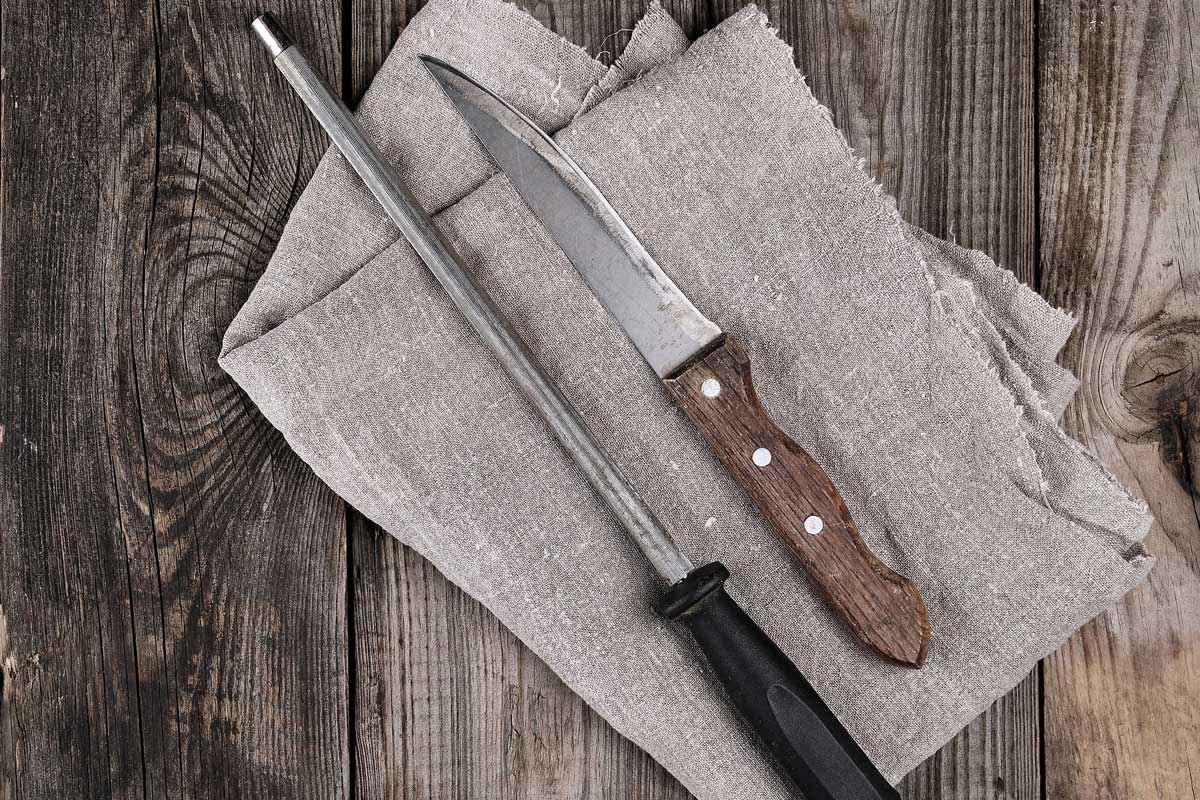
When and how you sharpen your knives has many influencing factors. Hopefully, the information we have provided will help you keep your blades in good shape so you can enjoy preparing food in your kitchen. Check out our other posts for more great information on knives:
How Long Do Kitchen Knifes Last?
7 Types Of Chefs Knives You Should Know





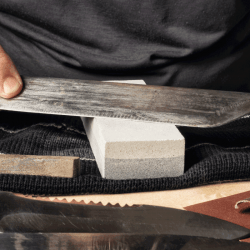
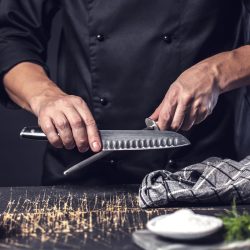
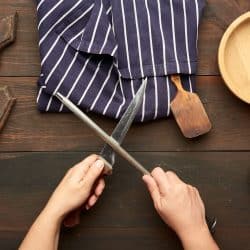
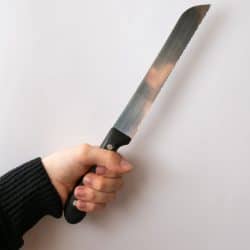
![knife and old iron sharpener with handle for kitchen knives on a white background, Do Knife Sharpeners Wear Out? [And When To Replace Yours]](https://kitchenseer.com/wp-content/uploads/2021/09/knife-and-old-iron-sharpener-with-handle-for-kitchen-knives-on-a-white-background-250x250.jpg)
